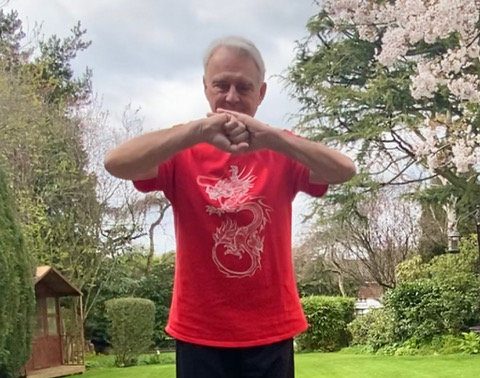This week is Men’s Health Week, and somehow as well as facing up to Covid problems, we should also try to think about the health issues that particularly affect men, to encourage men to become more aware of the health problems they may have or could develop, and then to decide to do something about it.It’s tough for men to ask for help, but if you don’t ask when you need it, things generally only get worse.Of course it is worrying that men are twice as likely to die of Covid, that Prostrate Cancer is the commonest cause of cancer in men, and that heart disease remains the main cause of death in men. It should be simple to grow old gracefully: don’t smoke, eat a healthy diet and take regular exercise. But it is not easy in our busy and stressful world.Men are more likely to become angry when stressed – this is a natural response, and if channelled correctly it can help us cope. But often the stress and anger is also masking some underlying depression, despair or loss of dignity, and of course anger can lead to aggression. We are now finally beginning to recognise how common mental health problems are in men, and how difficult it can be for men (or anyone) to recognise and begin to deal with such problems.
Every day of our lives we face challenges – sometimes expected, often unexpected. Some challenges will be mostly physical, and we can prepare for these by keeping physically fit and healthy. We can train and practice, we can improve and strive to do better, and enjoy that special feeling you get when you’ve managed to do something really well.Any challenge will also always be at least partly mental, requiring us to relax and concentrate, and to do this well we need to be calm and to focus inwardly. Sometimes the challenge is entirely mental, unsettling us down deep into our core, threatening and worrying us so much that we may begin to lose the mental balance that keeps us strong.
With the whole world now undergoing such an enormous challenge, we all need to find a way to cope with the stresses and anxieties of day to day life, and to try and think positively about the future.
There is a well-established and proven way to channel and control our inner tensions, to learn how to be calm, and to be healthier both physically and mentally.That way is to follow the path of the ancient art of Tai Chi, and the related movements of Qigong(pronounced “Chi Kung”). Although based on traditional martial arts, Tai Chi and Qigong are designed to help develop and maintain soft “internal” energy and inner peace, rather than focussing on the hard external force and fast movements of common high-intensity sport and exercises.Tai Chi and Qigong are a form of moving meditation, bringing serenity by their gentle, flowing movements and calm slow breathing. The inner focus and relaxed concentration that they create has been shown in many clinical studies to reduce stress, anxiety and depression, to improve mood and quality of life, to improve muscle strength, mobility and balance, and there is some evidence to suggest benefits to blood pressure and for our immune systems.
Practicing a Tai Chi form or a set of Qigong movements only takes 5-10 minutes, and immediately brings an inner feeling of relaxation that is a wonderful way to combat the stresses of the Covid crisis and lockdown, and to cope with all the other day to day challenges we face. You don’t need much room, you don’t need any expensive kit, and you certainly don’t need to wear any lycra, but you do need to want to slow down and to calm your mind for a while. The more often you practice, even if only for a few minutes, the more benefit you feel. Learning the sequence of moves takes time, but like learning a dance or any skill you never stop learning more, you never stop improving if you keep trying to be better. The gentle physical and mental training is part of the enjoyment that helps to bring you health, inner peace and happiness.
Go on – try Tai Chi and Qigong. Find a local class and join in. Some may think it is too slow and want instant “results”, but be patient – we can all benefit from taking a bit more time to understand ourselves better, and to realise that often slow and calmer is better than fast and furious.
It should not be all about the target or the end result or the destination – what is much more important is that we learn from and enjoy the experience of the journey. Take yourself down the way of Tai Chi and Qigong, move away from the crowds and frantic stress, and discover your quiet path to health and inner calm.
Dr John Bayliss FRCP(Consultant Cardiologist – retired)

